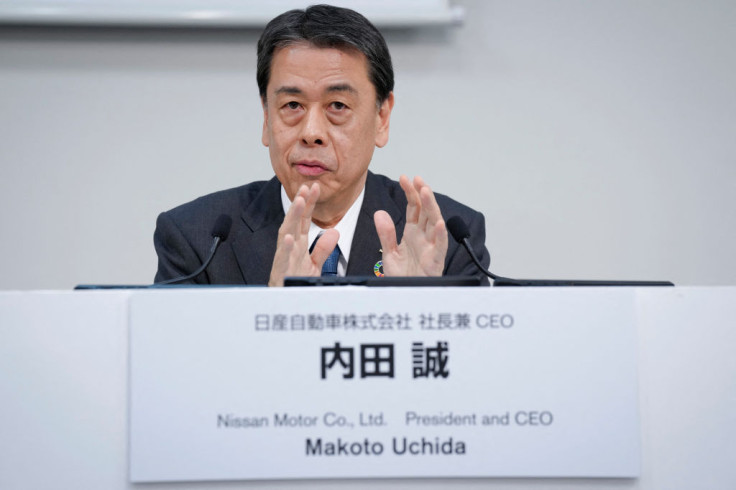
President Donald Trump's threats of implementing new tariffs on Mexico's steel and aluminum exports have raised concerns for many companies based there. One of the latest to make its concerns public is Japanese automobile manufacturer Nissan.
According to reports, the vehicle manufacturer is "studying" the possibility of leaving Mexico if Trump goes through with his threats of imposing a 25% tariff on Mexican goods as the tax would pose a significant challenge to Nissan's profitability.
The Japanese company has three plants on Mexican soil: two in the state of Aguascalientes and one in the state of Morelos. According to El País, Nissan exports around 320,000 vehicles from Mexico to the U.S. each year.
During a press conference on Feb. 13, Nissan CEO Makoto Uchida explored the possibility of moving production somewhere else. "If high tariffs are imposed, we must be prepared to adapt, and moving production elsewhere might become a necessary step," Uchida said. Although the company has not made a final decision, it is closely monitoring the situation and evaluating different solutions.
"We export a large volume of vehicles to the U.S., so if high tariffs are implemented, that would have a huge impact in our company," Uchida added.
If Nissan decides to leave Mexico, potential destinations could include the U.S., as the company already operates manufacturing facilities in Smyrna, Tennessee, and Canton, Mississippi. Other possibilities include expanding operations in Asia.
Nissan is not the only company that has been debating whether or not to leave Mexico amid Trump's tariffs. In late January, online rumors suggested that General Motors was potentially transferring part of its vehicle manufacturing to the U.S. in case Trump moved forward with his intended tariffs on Mexican goods.
The vehicle manufacturer has had a strong presence in Mexico since 1935. Currently, General Motors employs more than 25,000 people across its four assembly plants in the states of Mexico, Sinaloa, San Luis Potosí and Coahuila.
Mary Barra, chair and chief executive officer of General Motors since 2014, said during a teleconference that she hopes tariffs can be avoided.
Mexican President Claudia Sheinbaum was able to pause Trump's tariffs for a month after reaching a deal with the U.S. that will see 10,000 Mexican troops be sent to the border in order to "prevent drug trafficking from Mexico to the United States, particularly fentanyl," she said in a post on X.
The agreement also includes the U.S. committing to "work to prevent the trafficking of high-caliber weapons to Mexico" and for teams from both countries to start "working today on two matters: security and trade," she also said in the post.
The announcement of the agreement came one day before tariffs were set to go into effect on Feb. 1.
© 2025 Latin Times. All rights reserved. Do not reproduce without permission.







